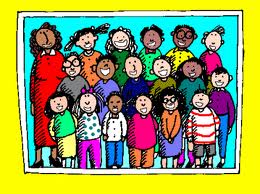
In the previous post I discussed how increased income disparity caused by the power of global multi-nationals is creating a world we do not want to live in.
But what can you and I do? We are not victims, nor are we uninvolved bystanders, we are participants. We are not powerless, we vote with our dollars, time and actions.
I promised you some suggestions. Here are ten for your consideration. If you are already doing some of these – yeah!!! If not, start now!
1. Social change starts inside. We can explore our own values. Know what they are and live in a way that brings integrity to the best within ourselves. Eliminate any violence (physical, mental, emotional, verbal) in your own life. Meditate. Reflect. Pray.
2. Education. We need to become educated regarding the real nature of poverty. Get your news from sources other than American news companies. Read how other countries perceive events in the world. (Jerusalem Post, Al-Masry Al-Youm, Der Spiegel).
3. Read. Read. Read. Most of what we need to know can’t be found on TV. TV is junk food for the mind. Read how U.S. policies have affected other countries. Books like Mark Kramer’s Dispossessed and Jeffrey Sach’s The End of Poverty provide a good foundation and a bibliography of other resources. Request that these books and others be available in your local library. Other books include The Blue Sweater, Three Cups of Tea and Half the Sky.
4. Volunteer and donate to non-profits such as Bread for the World or Mary’s Pence, working with networks of women to solve the problem of poverty – not just provide charity.
5. If your church or community offers mission trips to poverty stricken areas – go. Talk to those struggling with poverty. Listen and learn from them the problems they face every day for clean water, food, housing. We would not last a day in their world. Or arrange a dialogue with some of the working poor in your city through your church or community organization. Find out what life is like for many right in your own community.
6. Buy Fair Trade and local products whenever possible. Buy produce from your local Farmer’s Market. Know where the things you purchase come from and how those who make them are paid.
7. Learn how extreme weather caused by climate change particularly impacts the global south, the two thirds world – creating more poverty. Drive less. Carpool. Walk more. Use public transportation when you can. Consolidate your trips. Fly less often. Shop less. Consume less. Live more simply.
8. Work to end sexism, racism and “isms” of all kinds. Discrimination moves billions of dollars unfairly from one group to another. Begin with suggestions in a previous post here. In the Twin Cities we have an inter-faith discussion group. Join us or start one in your community. Learn about the different (“different” not worse) values and perceptions of other faith traditions. Hear others’ stories and share your own.
9. Become active in local politics. Meet with your local politicians. Participate with many others in “A Day on the Hill” – a joint religious advocacy gathering today at the State Capital. Or work with MICAH for affordable housing in your community. All change starts locally.
10. What else can we do?
The ability to develop deep relationships beyond our own family (clan, social class, nation) and connect with others who are different than ourselves is what it means to become truly human. This is compassion. This is what brings depth and meaning to life.
We are part of the human family and the web of creation. Just like with our own families – this family will not be healthy and whole until each member is healthy and whole.
This is not an easy task. Certainly it is not an instant or quick-fix task. But neither is it an impossible task. Rather, it takes education, listening, connecting and be willing to make different choices. Come with me on the journey!
You may also like How Extreme Income Inequality Destroys the Economy
[…] You may also like “Fresh – The Movie,” Are We So Different? and What Can You and I Do? […]